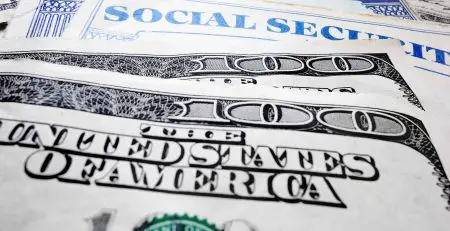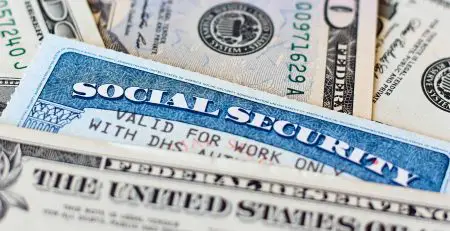Many people find it difficult to be financially responsible. As a result, it is common for people to have debts sent to collections. When a debt collector calls, the terror and stress that follows can be overwhelming.
What Does it Mean to Have Collection Accounts?
When you miss a payment, your original creditor may sell your debt to a debt collector or collection agency. Mortgages, car loans, credit card debt, student loan debt, and other debts can all be sent to collectors. Most lenders start by trying to collect the money on their own. For the majority of companies, debt collection is frequently the last option. Debts that are submitted to collections are typically 120 to 180 days past due.
When a debt goes into collections, it is usually reported to the three major credit bureaus—Experian, Transunion, and Equifax—damaging your credit score. A collection account must be removed from your report once a certain amount of time has passed.
How Do Collections Affect Your Credit Score?
Your credit report determines your credit score. Because credit bureaus are the ones who look at your report, the impact will differ from one to the next. Late payments are divided into several categories, such as 30 days late, 60 days late, 120 days late, and so on. A reasonable rule of thumb is that the later the debt, the more negative impact on your credit report it will have.
When a debt goes into collections, it means the original creditor has given up on collecting the obligation on their own so they either hire a debt collection agency to collect for them or sell the debt to a debt collection agency outright. This could result in a significant reduction in your credit score.
Your payment history has a major impact on your credit score. In fact, it accounts for almost 35% of the total (depending on the scoring model you look at). As a result, these collection accounts will have a severe negative effect on your credit score. For this reason, many people are constantly trying to resolve the problem as soon as possible.
Fortunately, the negative impact of collection accounts on your credit score will decrease over time anyway. They do, however, remain on your credit report for seven years before they are removed.
How to Remove Collections From Your Credit Report?
Collection accounts have the ability to ruin your credit. They are bad, and they can lower your credit score by tens, if not hundreds, of points. Furthermore, even if you pay them off, they can stay on your credit report for seven years. You have come to the right article if you are wondering how to delete paid collections from your credit report. Here is how to do it:
Do Your Homework
In order to get details on your collection account, check out all of your credit reports. You can do so by going to AnnualCreditReport.com. Normally, you can only receive one free copy of each report each year. However, because of the pandemic, you can check your credit reports from all three bureaus for free every week until April 20, 2022.
Your credit report should indicate whether the collection is paid or unpaid, the amount you owe (if any), and the date the account became delinquent. If you do not know who the original creditor is, request that information from the collection agency.
After that, compare the collection information on the credit report with your own records for the reported account. If you have not kept any records, you can review your payment history with the original creditor by logging into the listed account.
Check the Account’s Legitimacy
While checking the collections shown on your account, ensure that the debt is yours. If it does not belong to you or you paid it off on time, dispute the error to have the collection removed from your report.
Choose a Way to Solve Your Problem
Here are 4 different plans of action you can try to get collection accounts off your report:
-
Dispute Incomplete or Inaccurate Collection Accounts
If you have inaccurate or incomplete collection accounts on your credit report, you have the right under the Fair Credit Reporting Act to dispute this information directly with the credit bureaus or creditors. You can submit a dispute on each credit bureau’s website by filling out the dispute form. If you need help writing a dispute letter, the Federal Trade Commission has sample letters available on its website.
A credit reporting company has 30 days after you submit your dispute to investigate your claim. If the credit bureau determines that the information you provided is correct, they will remove the collection account from your report. But if it finds that the company reporting the information was correct, the collection account will remain on your report for up to seven years.
-
Ask for a Goodwill Deletion
If you have a paid collection on your report, simply request that the debt collector or original collector remove it. This normally involves submitting a goodwill deletion letter to the debt collector or collection agency explaining your mistake, requesting forgiveness, and demonstrating how your payment history has improved.
That said, there is no guarantee that your collection will be deleted from your credit report if you choose this option, but it is worth a shot. If you manage to remove this account, you may be able to qualify for better terms on personal loans, mortgages, and credit cards.
-
Seek Help From a Credit Repair Company
Credit repair companies’ job is to handle the dispute process on your behalf. Instead of reviewing your credit report and submitting a dispute based on mistakes, this company will do it for you. These services are not free, and they do not do anything a person cannot do on their own.
They do, however, claim that their skills and experience can make a world of difference, which is why they believe they are worth the cost. Remember that there is no assurance that a credit repair company will be able to successfully eliminate the collection account. They are only disputing it. After all, it is your call.
-
Wait for It to Fall Off
When the debt in question is valid and you are unable to get the debt collector to remove it from your credit report, your only alternative is to wait. The collection should be removed from your credit report seven years after the account first became delinquent. Although this means that the collection will continue to affect your credit score, the impact will decrease over time.
Will Removing a Collection Account Improve My Credit Score?
Since payment history accounts for 35% of your FICO score, removing a collection account may improve your score. Nevertheless, there are some factors to determine how much it will increase. For example, if this negative account is the only one on your credit report, eliminating it may improve your score more than removing many other collection accounts.
Overall
A collection account is the last thing you want to see on your credit report. Luckily, you can remove it from your report in one way or another. If you have a legitimate collection account on your credit report, it will remain there for about seven years. You can ask a company for a goodwill deletion to remove the collection account from your credit report sooner. Just remember that there is no guarantee you will get forgiveness.
If you have a collection account on your credit report that is incorrect or incomplete, dispute it with each credit bureau that shows it. This will help you get rid of the collection account on your credit report. We genuinely wish you a clean report, free of collection accounts!
References:
- How To Remove Collections From Your Credit Report – Forbes Advisor
- How to Remove Collection Accounts from Your Credit Reports.
- https://money.com/best-credit-repair-companies/











